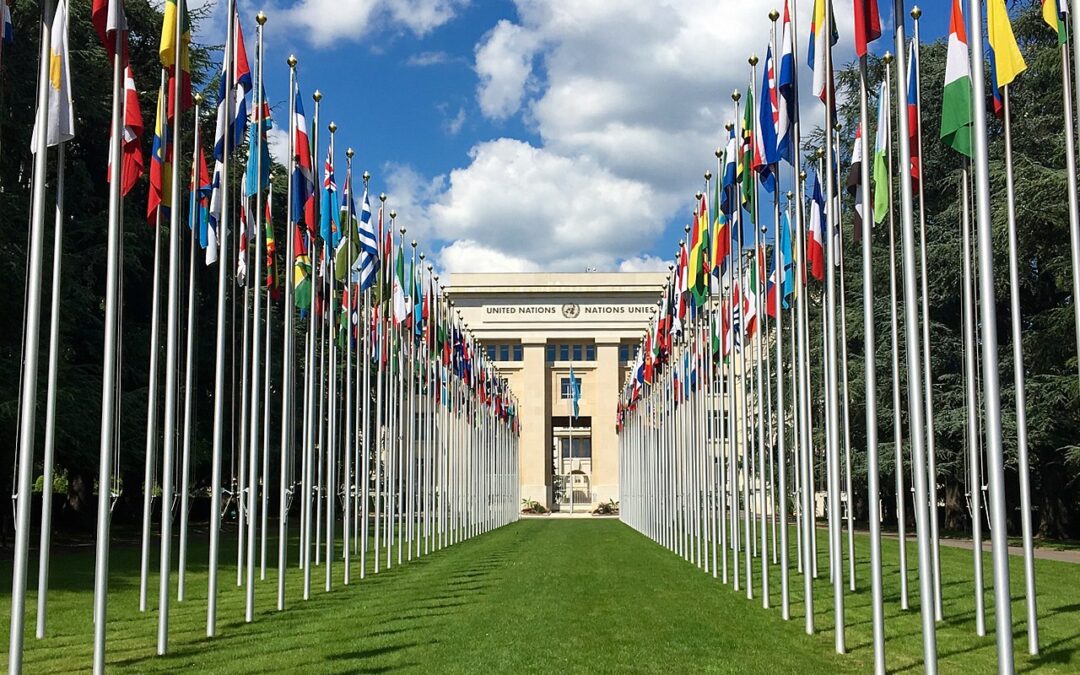
Sep 16, 2019 | Advocacy, Non-legal submissions
The ICJ today put the spotlight the increase and “normalisation” of enforce disappearances and abductions worldwide, with examples about Turkey, Egypt and Saudi Arabia, speaking at the UN Human Rights Council in Geneva.
The statement, made during the general debate, reads as follows:
The International Commission of Jurists (ICJ) shares concerns highlighted by the Working Group on Enforced and Involuntary Disappearances in its report (UN doc. A/HRC/42/40) at the “increasing use of extraterritorial abductions” and at the “normalization of these practices” globally. ICJ previously documented such practices in our 2017 report, Transnational Injustices.
The killing of Jamal Khashoggi by Saudi Arabia is an example of particular concern, as is the reported abduction, by Turkish authorities, of persons they claim to be linked to “terrorist organisations.” Several of these people, who later reappeared in Turkish prisons, are currently facing serious challenges in mounting a proper legal defence. Complaints of the families have not been properly investigated.
In Egypt, the National Security Agency (NSA) has been abducting and forcibly disappearing hundreds as a technique to suppress dissent. This year, the ICJ and Adalah reported on the disappearance of 138 detainees for between 10 to 219 days, many of whom were subjected to torture.
The ICJ urges the Council to address these worrying developments and calls on all countries:
- to stop all practices of enforced disappearance, abduction or informal international transfer;
- to ratify the International Convention for the Protection of All Persons from Enforced Disappearance, and
- to provide to the victims of enforced disappearance and their families full access to their rights, including an effective remedy.
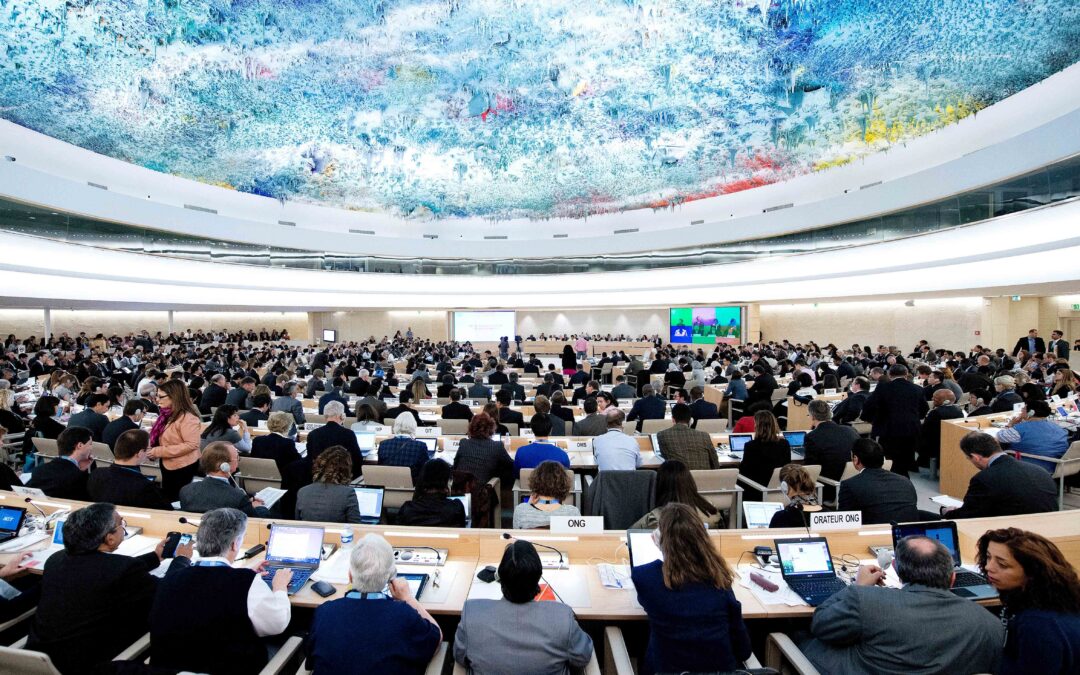
Jul 12, 2019 | Advocacy, Non-legal submissions
The ICJ joined other NGOs in an end-of-session statement, highlighting the achievements and shortfalls of the 41st Ordinary Session of the UN Human Rights Council, 24 June – 12 July 2019.
The statement, delivered by International Service for Human Rights (ISHR), reads as follows:
By renewing the mandate of the Independent Expert on protection against violence and discrimination based on sexual orientation and gender identity (SOGI), the Council has sent a clear message that violence and discrimination against people of diverse sexual orientations and gender identities cannot be tolerated. It reaffirmed that specific, sustained and systematic attention is needed to address these human rights violations and ensure that LGBT people can live a life of dignity. We welcome the Core Group’s commitment to engage in dialogue with all States, resulting in 50 original co-sponsors across all regions. However, we regret that some States have again attempted to prevent the Council from addressing discrimination and violence on the basis of SOGI.
The Council session also sent a clear message that Council membership comes with scrutiny by addressing the situations of Eritrea, the Philippines, China, Saudi Arabia and the Democratic Republic of Congo. This shows the potential the Council has to leverage its membership to become more effective and responsive to rights holders and victims.
The Council did the right thing by extending its monitoring of the situation in Eritrea. The onus is on the Eritrean Government to cooperate with Council mechanisms, including the Special Rapporteur, in line with its membership obligations.
We welcome the first Council resolution on the Philippines as an important first step towards justice and accountability. We urge the Council to closely follow this situation and be ready to follow up with additional action, if the situation does not improve or deteriorates further. We deeply regret that such a resolution was necessary, due to the continuation of serious violations and repeated refusal of the Philippines – despite its membership of the Council– to cooperate with existing mechanisms.
We deplore that Council members, such as the Philippines and Eritrea, sought to use their seats in this Council to seek to shield themselves from scrutiny, and those States[1] who stand with the authorities and perpetrators who continue to commit grave violations with impunity, rather than with the victims.
We welcome the written statement by 22 States on China expressing collective concern over widespread surveillance, restrictions to freedoms of religion and movement, and large-scale arbitrary detention of Uyghurs and other minorities in Xinjiang. We consider it as a first step towards sustained Council attention and in the absence of progress look to those governments that have signed this letter to follow up at the September session with a resolution calling for China to allow access to the region to independent human rights experts and to end country-wide the arbitrary detention of individuals based on their religious beliefs or political opinions.
We welcome the progress made in resolutions on the rights of women and girls: violence against women and girls in the world of work, on discrimination against women and girls and on the consequences of child, early and forced marriage. We particularly welcome the renewal of the mandate of the Working Group on Discrimination Against Women and Girls under its new name and mandate to focus on the intersections of gender and age and their impact on girls. The Council showed that it was willing to stand up to the global backlash against the rights of women and girls by ensuring that these resolutions reflect the current international legal framework and to resist cultural relativism, despite several amendments put forward to try and weaken the strong content of these resolutions.
However, in the text on the contribution of development to the enjoyment of all human rights, long standing consensus language from the Vienna Declaration for Programme of Action (VDPA) recognising that, at the same time, “the lack of development may not be invoked to justify the abridgement of internationally recognized human rights” has again been deliberately excluded disturbing the careful balance established and maintained for several decades on this issue.
We welcome the continuous engagement of the Council in addressing the threat posed by climate change to human rights, through its annual resolution and the panel discussion on women’s rights and climate change at this session. We call on the Council to continue to strengthen its work on this issue, given its increasing urgency for the protection of all human rights.
The Council has missed an opportunity on Sudan where it could have supported regional efforts and ensured that human rights are not sidelined in the process. We now look to African leadership to ensure that human rights are upheld in the transition. The Council should stand ready to act, including through setting up a full-fledged inquiry into all instances of violence against peaceful protesters and civilians across the country.
During the interactive dialogue with the Special Rapporteur on extrajudicial and summary executions, States heard loud and clear that the time to hold Saudi Arabia accountable is now for the extrajudicial killing of journalist Jamal Khashoggi. We recall that women human rights defenders continue to be arbitrarily detained despite the calls by 36 States at the March session. We urge States to adopt a resolution at the September session to establish a monitoring mechanism over the human rights situation in the country.
We welcome the landmark report of the High Commissioner on the situation for human rights in Venezuela; in response to the grave findings in the report and the absence of any fundamental improvement of the situation in the meantime, we urge the Council to adopt a Commission of Inquiry or similar mechanism in September, to reinforce the ongoing efforts of the High Commissioner and other actors to address the situation.
We welcome the renewal of the mandate on the freedom of peaceful assembly and association. This mandate is at the core of our work as civil society and we trust that the mandate will continue to protect and promote these fundamental freedoms towards a more open civic space.
We welcome the renewal of the mandate of the Special Rapporteur on Belarus. We acknowledge some positive signs of re-engagement in dialogue by Belarus, and an attempted negotiation process with the EU on a potential Item 10 resolution. However, in the absence of systemic human rights reforms in Belarus, the mandate and resolution process remains an essential tool for Belarusian civil society. In addition, there are fears of a spike in violations around upcoming elections and we are pleased that the resolution highlights the need for Belarus to provide safeguards against such an increase.
We welcome the renewal of the quarterly reporting process on the human rights situation in Ukraine. However, we also urge States to think creatively about how best to use this regular mechanism on Ukraine to make better progress on the human rights situation.
The continued delay in the release of the UN database of businesses engaged with Israeli settlements established pursuant to Council resolution 31/36 in March 2016 is of deep concern. We join others including Tunisia speaking on behalf of 65 states and Peru speaking on behalf of 26 States in calling on the High Commissioner to urgently and fully fulfil this mandate as a matter of urgency and on all States to cooperate with all Council mandates, including this one, and without political interference.
Numerous States and stakeholders highlighted the importance of the OHCHR report on Kashmir; while its release only a few days ago meant it did not receive substantive consideration at the present session, we look forward to discussing it in depth at the September session.
Finally, we welcome the principled leadership shown by Belgium, Luxembourg and the Netherlands, in pursuing accountability for individual victims of acts of intimidation and reprisals under General Debate Item 5, contrasting with other States which tend to make only general statements of concern, and call on States to raise all individual cases at the interactive dialogue on reprisals and intimidation in the September session.
(text in italics was not read out due to the limited time)
Signatories:
- International Service for Human Rights (ISHR)
- Amnesty International
- ARTICLE 19
- Asian Forum for Human Rights and Development (FORUM-ASIA)
- Association for Progressive Communications (APC)
- Cairo Institute for Human Rights Studies
- Center for Reproductive Rights
- CIVICUS: World Alliance for Citizen Participation
- DefendDefenders (the East and Horn of Africa Human Rights Defenders Project)
- Franciscans International
- Global Initiative for Economic, Social and Cultural Rights
- Human Rights House Foundation
- Human Rights Watch
- International Commission of Jurists (ICJ)
- International Federation for Human Rights (FIDH)
- International Lesbian and Gay Association (ILGA)
[1] States who voted against the resolution on Eritrea: Bahrain, Burkina Faso, Cameroon, China, Cuba, Egypt, Eritrea, Iraq, India, Saudi Arabia, Somalia, the Philippines and Pakistan.
States who voted against the resolution on the Philippines: Angola, Bahrain, Cameroon, China, Cuba, Egypt, Eritrea, Hungary, Iraq, India, Qatar, Saudi Arabia, Somalia, and the Philippines.
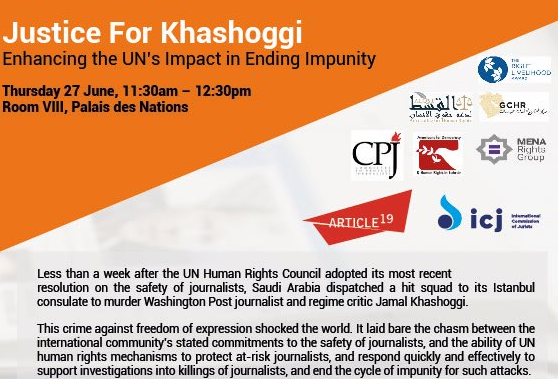
Jun 23, 2019 | Events, News
The ICJ joins other NGOs and UN experts in presenting a side event to the UN Human Rights Council, Thursday 27 June, 11:30am – 12:30pm, in Room VIII, Palais des Nations
Less than a week after the UN Human Rights Council adopted its most recent resolution on the safety of journalists, Saudi Arabia dispatched a hit squad to its Istanbul consulate to murder Washington Post journalist and regime critic Jamal Khashoggi.
This crime against freedom of expression shocked the world. It laid bare the chasm between the international community’s stated commitments to the safety of journalists, and the ability of UN human rights mechanisms to protect at-risk journalists, and respond quickly and effectively to support investigations into killings of journalists, and end the cycle of impunity for such attacks.
This human rights crisis is not limited to autocratic countries or nascent democracies – after several years in decline, the number of killings of journalists worldwide spiked in 2018, whilst impunity for historic cases remains troublingly high, fueling further violence. In Malta, a report by PACE Special Rapporteur Pieter Omtzigt into the killing of Daphne Caruana Galizia more than 18 months ago, highlighted serious concerns over national investigations, pointing to systemic rule of law failings in the country.
As the UN Special Rapporteur on extrajudicial, arbitrary or summary executions, Dr. Agnès Callamard, presents the findings of her independent investigation into the killing of Jamal Khashoggi to the 41st Session of the UN Human Rights Council, join us to discuss what recent attacks on journalists have taught us about gaps in prevention, protection and prosecution, and how to enhance the UN’s response to impunity.
| Panelists |
Dr. Agnès Callamard |
UN Special Rapporteur on extrajudicial, summary or arbitrary executions |
|
David Kaye |
UN Special Rapporteur on freedom of opinion and expression |
|
Hatice Cengiz |
Fiancée of Jamal Khashoggi |
|
Pieter Omtzigt |
Special Rapporteur, Council of Europe |
|
Rob Mahoney |
Deputy Executive Director, Committee to Protect Journalists |
|
Yahya Assiri |
Founder and Director, ALQST |
| Moderator |
Thomas Hughes |
Executive Director, ARTICLE 19 |
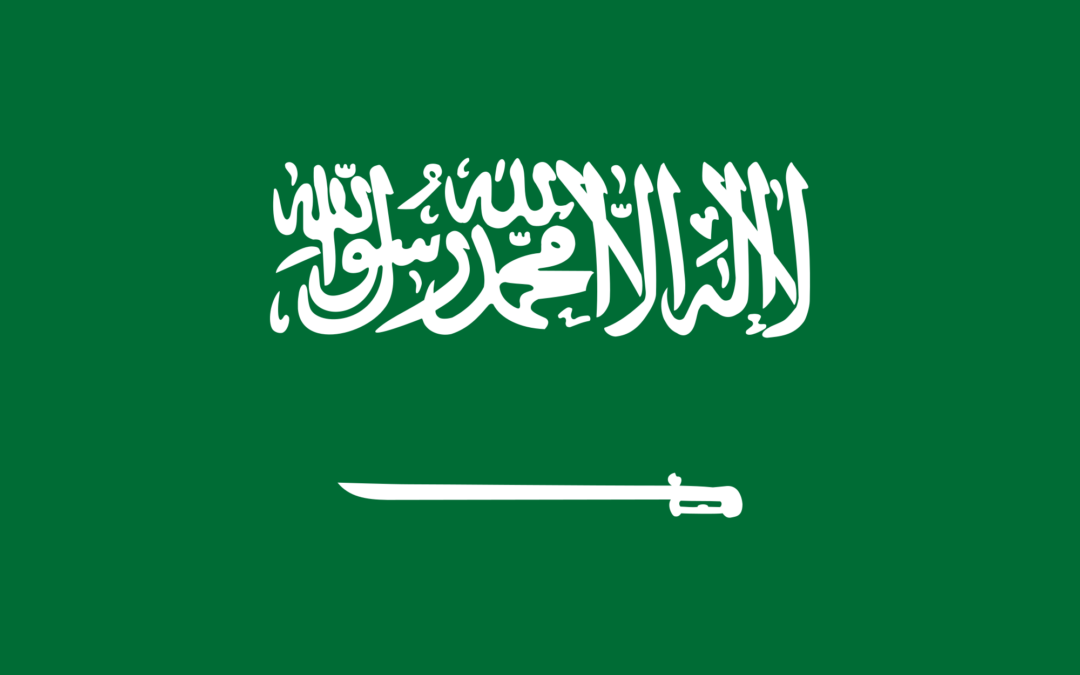
Jun 7, 2019 | News
The ICJ today condemned the impending moves to subject three prominent Saudi clerics to an inevitably unfair trial on dubious charges that might result in sentences of death and arbitrary execution.
According to credible media reports citing Saudi government sources, Salman al-Odah, Ali Al-Omari and Awad al-Qarni, three prominent Saudi clerics, will almost certainly be convicted, sentenced to death and executed soon after Ramadan.
The media reports follow last April’s mass executions of 37 people, and the crucifixion of one them, following their conviction and sentencing to death for similar “terrorism” related charges.
The ICJ calls for the clerics’ release unless they can be charged with a recognizable criminal offence consistent with the rule of law, and tried before a competent, independent, and impartial court that ensures fair trial rights.
“Saudi Arabia is abusively resorting to terrorism related charges, unfair trials, and sentences of death followed by arbitrary execution to permanently silence perceived critical voices,” said Said Benarbia, the ICJ’s MENA Programme Director.
“Instead of perpetuating egregious violations of the right to life, Saudi authorities must administer justice fairly and in accordance with international law and standards,” he added.
One of the defendants, Salman al-Odah, was charged by prosecutors in September 2018 with 37 offences, including “belonging to a terrorist group: the Muslim Brotherhood,” “stirring public discord and inciting people against the ruler,” “calling for change in government,” “supporting Arab revolutions,” “possessing banned books” and “describing the Saudi government as a tyranny.”
The ICJ fears that Salman al-Odah may be subject to these charges simply for exercising his protected right to freedom of expression.
Together with the other two clerics, Salman al-Odah faces trial before the specialized criminal court, an exceptional court that fails to ensure respect of fair trial rights and that has been used to try those suspected of committing terrorism related offences, political activists, and human rights defenders.
The ICJ is concerned that since their arrest in September 2017, the clerics have allegedly been subject to incommunicado detention and prolonged solitary confinement for months. Such treatment amounts to torture or cruel, inhuman and degrading treatment, prohibited under international law.
Carrying out executions following proceedings that fail to scrupulously observe international fair trial standards always amounts to an arbitrary deprivation of life.
The ICJ opposes the use of the death penalty in all circumstances as a violation of the right to life and a form of cruel, inhuman and degrading punishment.
The ICJ underscores that the United Nations General Assembly, by an overwhelming majority, has repeated called on States that retain the death penalty to impose an immediate moratorium on executions with a view to abolition.
The ICJ calls on the Saudi authorities to immediately move toward abolishing the death penalty and impose an immediate moratorium on executions.
Background
The clerics’ detention and ongoing trial are part of a broader crackdown on activists and dissidents since September 2017, including through politicized judicial proceedings and trumped up charges under the 2014 Royal Decree.
The Decree criminalizes as terrorism offences acts that do not involve serious violence, including acts that aim to suspend the enforcement of the Constitution or some of its articles, as well as any acts that undermine the State’s prestige and standing.
Such broad definitions have effectively been used to criminalize the legitimate and peaceful exercise of human rights, including the rights to freedom of expression, association and assembly, and the right to take part in the conduct of public affairs.
The 2014 Royal Decree also allows the Minister of Interior to order the arrest of any person suspected of committing terrorism related offences, and for those arrested to remain in pre-trial detention for up to six months and to be prohibited from communicating with their family members for up to three months. Those arrested cannot be released pending trial without the authorization of the Minister of Interior or someone authorized by him.
Such conditions contravene international standards on the rights to liberty and to a fair trial.
Saudi Arabia-Death penalty-News-2019-ARA (Arabic version, in PDF)
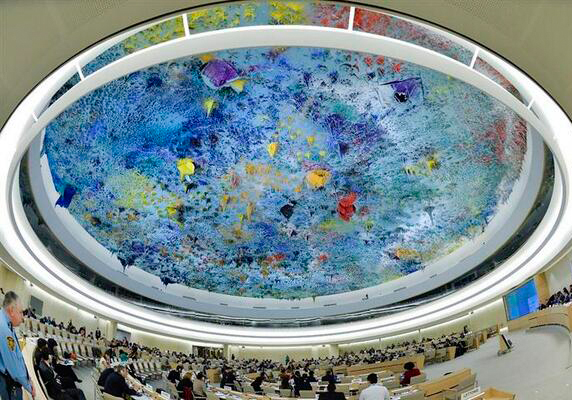
Mar 22, 2019 | Advocacy, Non-legal submissions
The ICJ has joined with ten other leading human rights organisations to highlight the key outcomes of the 40th regular session of the UN Human Rights Council in Geneva, at its conclusion on 22 March 2019.
The joint NGO statement, delivered at the end of the session, reads as follows:
“We welcome the positive step the Council has taken in the direction to effectively protect environmental human rights defenders (EHRDs) from the grave reality they face every day. By adopting the resolution by consensus, the Council has collectively and explicitly recognized the vital role of EHRDS, including in attaining the SDGs sustainable development goals and ensuring that no-one is left behind, and called for their protection. We also welcome the call on States to provide a safe and empowering context for initiatives organised by young people and children to defend human rights relating to the environment. We, however, regret that the resolution does not squarely address the obligations of international financial institutions and investors.
We welcome South Africa’s leadership to put on the Council’s agenda emerging human rights issues, in bringing attention to the multiple and intersecting forms of discrimination that women and girls face in the field of sports, especially on the basis of race and gender.
The Council has ensured its continued attention to grave rights violations across the globe.
While we welcome the extension of Council attention on Sri Lanka for another two years, a concrete, transparent, and time-bound action plan is urgently needed to implement its commitments under resolution 30/1 in collaboration with OHCHR. Given the lack of progress and political will to implement these commitments, in the absence of immediate progress, the Council should consider additional measures or mechanisms for ensuring victims’ rights to truth, justice and reparations. Individual States need not wait to exercise universal jurisdiction.
We welcome the resolution on Myanmar and its strong focus on ending impunity and ensuring accountability, and we call for the swift operationalisation of the Independent Investigative Mechanism (IIM). We welcome steps taken to review the UN’s involvement in Myanmar. We urge the UN Secretary-General to ensure that it is independent and transparent, and present the findings and recommendations at the Council’s 43rd session.
We welcome the renewal of the mandate of the Commission on Human Rights in South Sudan, a vital mechanism for human rights reporting and evidence gathering. It sends the right message to the government and all parties to the conflict: There can be no lasting peace without justice.
The Council continued this session to initiate action on country situations based on objective criteria through resolutions and joint statements.
By adopting a resolution on Nicaragua, the Council sent a signal to victims of the current crisis that the international community will not allow impunity for the serious ongoing violations to prevail. We look forward to robust reporting from the OHCHR and we urge the Nicaraguan government to fully engage with the Office to ensure the victims’ rights to truth, justice and reparation.
The Council sent a strong message of support to human rights defenders in Saudi Arabia through the joint statement by 36 States, led by Iceland, calling for the release of detained women human rights defenders and called on the Saudi government to fully cooperate with the Special Rapporteur on extrajudicial, summary or arbitrary executions in her investigation into the killing of journalist Jamal Khashoggi. We urge the Saudi authorities to respond fully to these calls, and States to follow up with a resolution at the June session to maintain attention to the situation until meaningful progress, including the release of defenders, is made.
LGBT people in Chechnya are being abducted, locked up in secret detention sites, tortured and sometimes killed purely because of their sexual orientation. We welcome the joint statement on Chechnya delivered by more than 30 States and join the call on the Russian authorities for the persecution to stop: for the immediate and unconditional release of all detained for their actual or perceived sexual orientation or gender identity, and for swift, thorough, and impartial investigations.
We welcome the Cameroon joint statement which advances both Council membership standards and its prevention mandate, and urge the Council to keep the matter under scrutiny.
While we have welcomed the Council’s attention to several situations of gross rights violations, we remain concerned about the lack of consistent and principled leadership by States, in particular by Council members.
We are disappointed that even though the demands of several EU and WEOG States to move the resolution on accountability for crimes committed in the Occupied Palestinian Territories from item 7 to item 2 was met, they still failed to support the resolution. This suggests that no matter the item number, some WEOG members continue in failing to protect the human rights of Palestinians, effectively shielding Israel from accountability.
We regret that States have yet again failed to initiate Council action on the Philippines amidst continued unlawful killings in the government’s so-called war on drugs, and increased targeting of independent media, civil society organisations, and human rights defenders. We reiterate our call on the Council to take action to mandate an independent investigation to establish the facts of human rights violations including extrajudicial executions and attacks against media and civil society, address impunity, and take steps towards justice and reparations for the victims and their families, and hope action will be taken in this regard at the next Council session.
We are deeply disappointed that the resolution adopted on Libya again lacks any meaningful accountability mechanism or mandate, despite the impunity for the widespread and systematic violations of international humanitarian and human rights law that prevail there.
We deplore that despite credible reports of the detention of up to 1 million Uyghurs and other Turkic Muslims in western China, the Council has yet again given a pass to China, permitting impunity for widespread and severe human rights violations. The efforts China has made to keep States silent, exemplified by intimidation and threats on the one hand and whitewashing the situation on the other, demonstrate the degree to which Council action could have had meaningful results if States had instead called clearly and collectively for an independent, unrestricted fact-finding mission.
On the resolution on the rights of the child, we regret the Council’s inability to emphasize the empowerment, autonomy and capacity of children with disabilities, and including to ensure that their sexual and reproductive health and rights must be respected, protected and fulfilled.
We applaud Mexico and other States’ resolve to safeguard the independence of the mandate of the Special Rapporteur on the promotion and protection of human rights while countering terrorism and to resist any attempts to dilute, distract or distort its essential focus, ensuring that the Rapporteur can continue to have positive impacts both in preventing and responding to human rights violations committed in the name of countering terrorism and in relation to the human rights of victims of terrorism. We urge States to remain vigilant to resist future attempts to undermine the Special Procedures system- the eyes and ears of the Council.
We welcome the Council’s renewal of the mandates of the Special Rapporteur on Iran and the Commission of Inquiry on Syria, so that both can continue to perform their vital work fulfilling their respective mandates and addressing the dire human rights situations in both countries. We urge the Iranian and Syrian authorities to change their posture of noncooperation with the respective mandate .
Several of our organisations have urged the UN High Commissioner to publish the database on businesses in Israeli settlements and were alarmed at its further delay. We urge the High Commissioner to release the database with all due haste.
We welcome the renewal of the Special Rapporteur on freedom of religion or belief mandate, and the maintenance of consensus on the Council resolution 16/18 framework for addressing religious intolerance . Rising intolerance and hate is a global concern, and States must move beyond rhetoric to action in implementing these standards.
The High Commissioner’s update on Venezuela during this session reflected the dire human rights situation in Venezuela. We urge all States to consider what more the Council can do to address the worsening human rights crisis in the country and to support all victims.
We note the highly disturbing report by the Special Rapporteur on adequate housing concerning grave reprisals by the Egyptian government against those who cooperated with her during her recent visit to the country and urge this Council to take action to address these attacks.
We welcome the passage of the resolution on Georgia and the continued attention devoted to the importance of full and unimpeded access for the Office of the High Commissioner and international and regional human rights mechanisms.”
Signatories:
- Amnesty International
- ARTICLE 19
- Asian Forum for Human Rights and Development (FORUM-ASIA)
- DefendDefenders (East and Horn of Africa Human Rights Defenders Project)
- Center for Reproductive Rights
- CIVICUS
- Human Rights House Foundation
- Human Rights Watch
- International Commission of Jurists
- International Federation for Human Rights (FIDH)
- International Service for Human Rights









